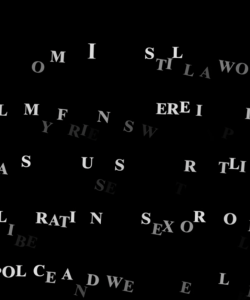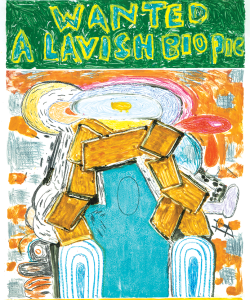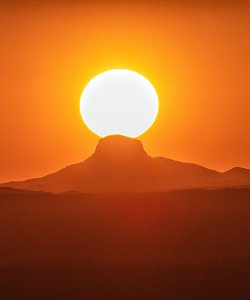Poetry NFTs Are Having a Moment

No longer limited to static text on a page, poets are composing verse in the unique medium of an NFT, opening new creative, collaborative, and financial possibilities for work that defies categorization.
Jump to navigation Skip to content

No longer limited to static text on a page, poets are composing verse in the unique medium of an NFT, opening new creative, collaborative, and financial possibilities for work that defies categorization.

Inspired by the “Wanted” posters U.S. law enforcement officials used to locate fugitive outlaws, poet John Yau and visual artist Richard Hull hail under-appreciated artists such as Sessue Hayakawa and John D. Graham.
In this virtual reading and conversation, Poets & Writers editor in chief Kevin Larimer introduces the 2023 cohort of “5 Over 50” debut authors, Alma García, author of All That Rises (University of Arizona Press, 2023); Bernardine “Dine” Watson, author of Transplant (Washington Writers’ Publishing House, 2023); Tommy Archuleta, author of Susto (Center for Literary Publishing, 2023); Chin-Sun Lee, author of Upcountry (Unnamed Press, 2023); and Donna Spruijt-Metz, author of General Release From the Beginning of the World (Parlor Press, 2023).
Love poems have a long and storied literary history. “The Love Song for Shu-Sin,” composed in ancient Mesopotamia for use in fertility rituals, is considered by some to be the oldest love poem found in text form. “Song of Songs” from the Old Testament of the Bible celebrates the romantic and sexual love between two people. In more recent times, poets have been testing the limits of the love poem. Nate Marshall’s “palindrome” imagines an estranged lover’s life rewound like a film as the subject becomes “unpregnant” and the speaker “unlearn[s]” her name. In Sharon Olds’s “The Flurry,” two parents discuss how to tell their children they’re getting a divorce. Think of a relationship in your life that resists easy categorization and write a love poem that attempts to capture this complexity. Whether the subject is the distant love of a parental figure or the one who got away, resist the easy associations that come with the emotion and dive into love’s thorny contradictions.

The author of fox woman get out! explores the connections between poetry and dance.
In this video for the Poets House Hard Hat Reading series, poet and professor Kwame Dawes reads “Acceptance” by his mentor and father Neville Dawes, and his own poem “Sturge Town Redux,” which will appear in his collection Sturge Town, forthcoming from Norton.
“if you can read this / you are alive.” erica lewis reads her poem “i’m no great pretender,” which appears in her collection mahogany (Wesleyan University Press, 2023), in this poetry film produced by City Lights Booksellers & Publishers with the author.
The thirteen lines of the late Molly Brodak’s self-titled poem read: “I am a good man. / The amount of fear / I am ok with / is insane. / I love many people / who don’t love me. / I don’t actually know / if that is true. / This is love. / It is a mass of ice / melting, I can’t hold / it and I have nowhere / to put it down.” Through a series of declarative, zigzagging statements, the short poem manages to touch upon a handful of intense emotions—doubt, fear, uncertainty, desperation, and helplessness—all tied together by the eponymous title. This week write a short self-titled poem. How can you bring your own deeply personal responses to questions about your life and relationships under poetic scrutiny in a way that represents your individuality?

The author of fox woman get out! offers a climatic approach to reading and writing verse.
Don’t let 2023 pass you by without trying your luck at a writing contest! Prizes with a December 15 deadline include a weeklong residency at Millay Arts in Austerlitz, New York, and $1,000 (including $500 for a reading in New York City) for a poetry chapbook; $1,500 and publication for a short story; and $1,000 and publication for a poetry collection. Read on to learn more, and best of luck to you!
Center for Book Arts
Poetry Chapbook Contest
A prize of $500 and letterpress publication by the Center for Book Arts is given annually for a poetry chapbook. The winner will also receive 10 copies of their chapbook, an additional $500 to give a reading with the contest judge at the Center for Book Arts in New York City in fall 2024, and a free weeklong residency at Millay Arts in Austerlitz, New York, for their Wintertide Rustic Retreat. Manuscripts written in another language are accepted when accompanied by an English translation. Entry fee: $30.
Gival Press
Poetry Award
A prize of $1,000 and publication by Gival Press will be given biennially for a book of poetry. Beverly Burch will judge. Entry fee: $20.
Longleaf Press
Book Contest
A prize of $1,000, publication by Longleaf Press, and 25 author copies is given annually for a poetry collection. The winner will also be invited to give a virtual reading in early 2024. Roger Weingarten will judge. Entry fee: $27.
Story
Story Foundation Prize
A prize of $1,500 and publication in Story is given annually for a short story. Entry fee: $25.
Willow Books
Literature Awards
Three prizes of $1,000 each and publication by Willow Books are given annually for a book of poetry, fiction, and creative nonfiction by BIPOC writers. Entry fee: $25.
Visit the contest websites for complete guidelines, and check out the Grants & Awards database and Submission Calendar for more contests in poetry, fiction, creative nonfiction, and translation.